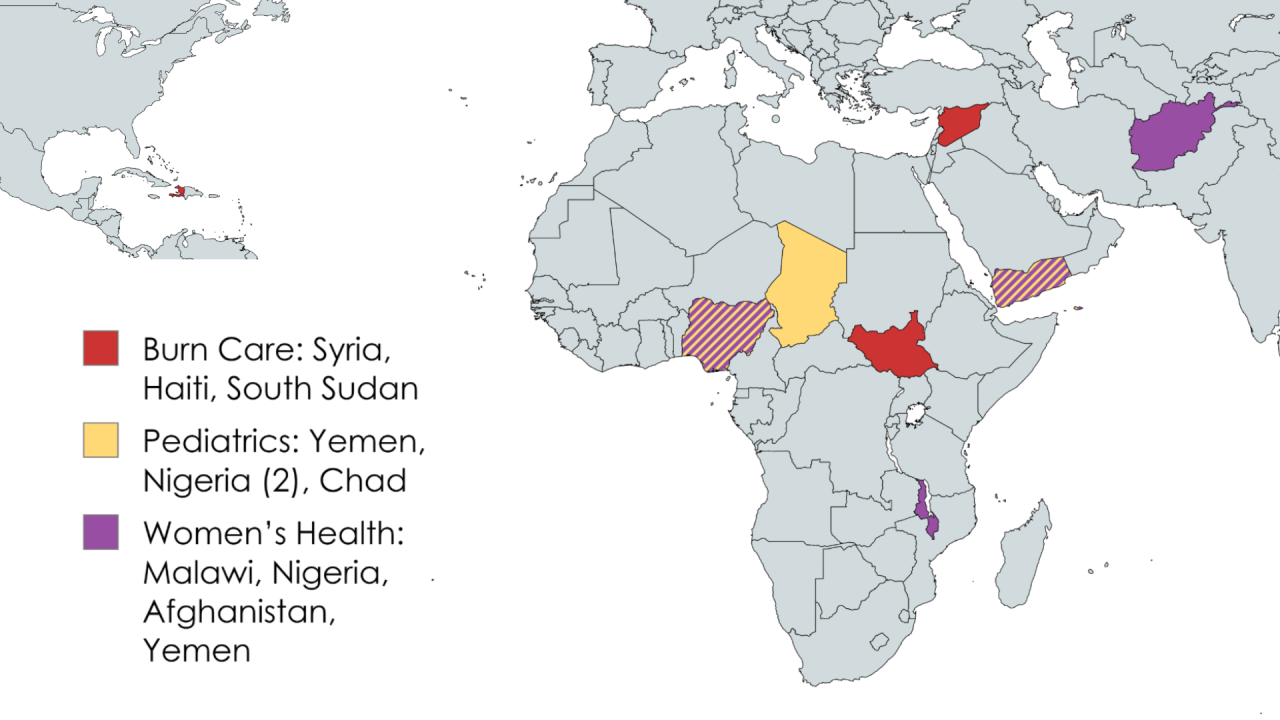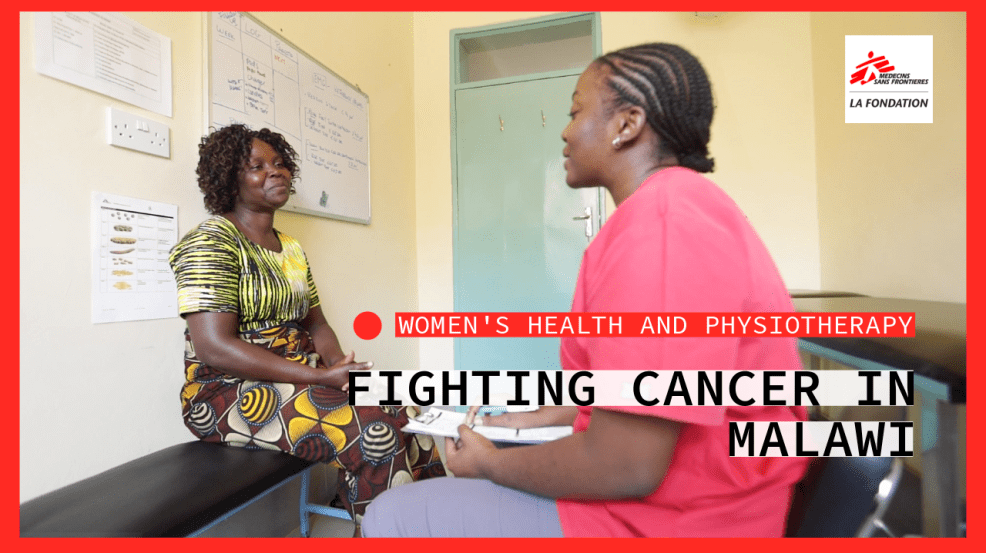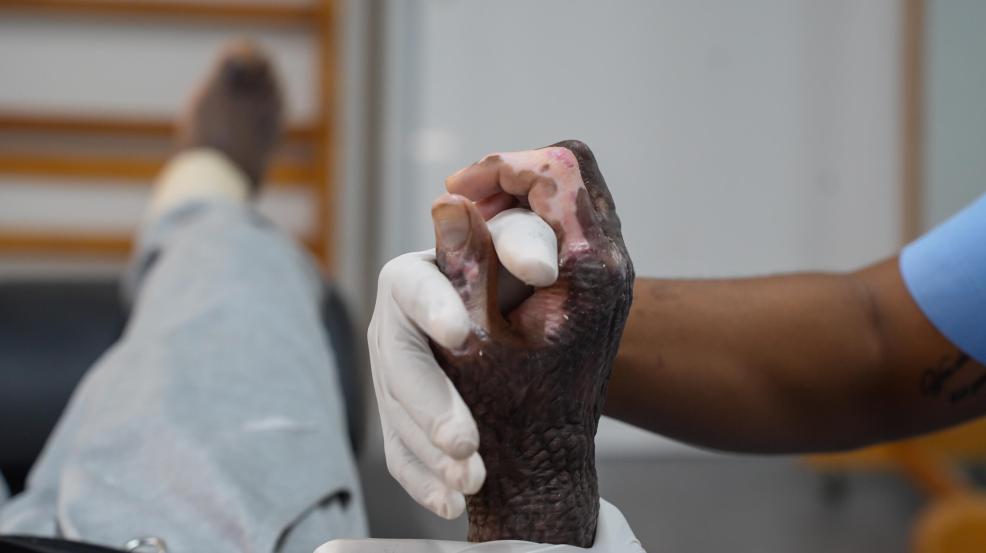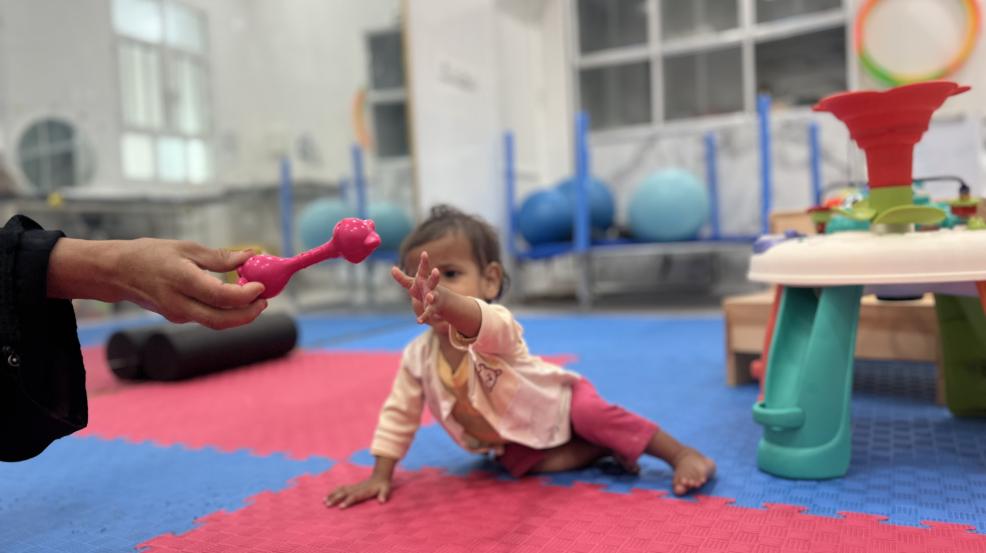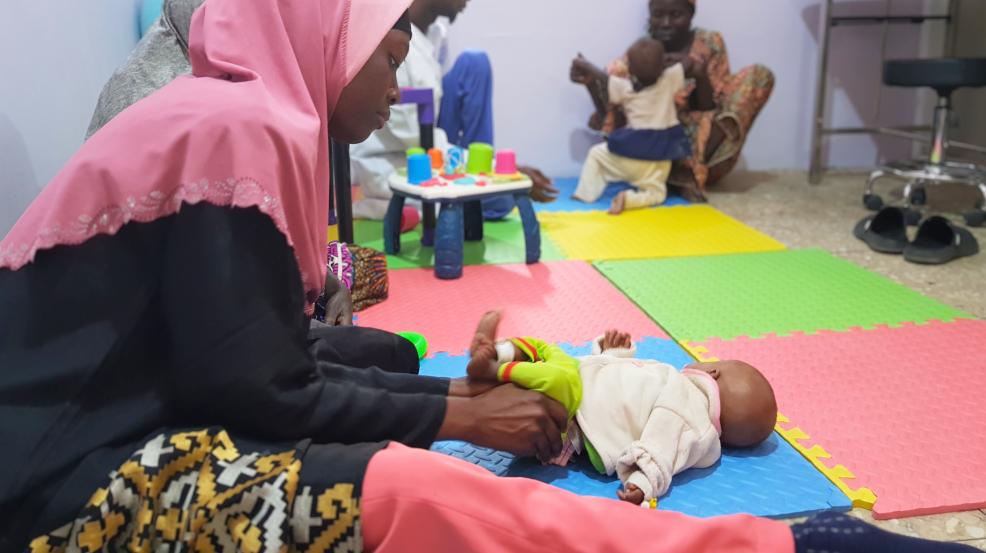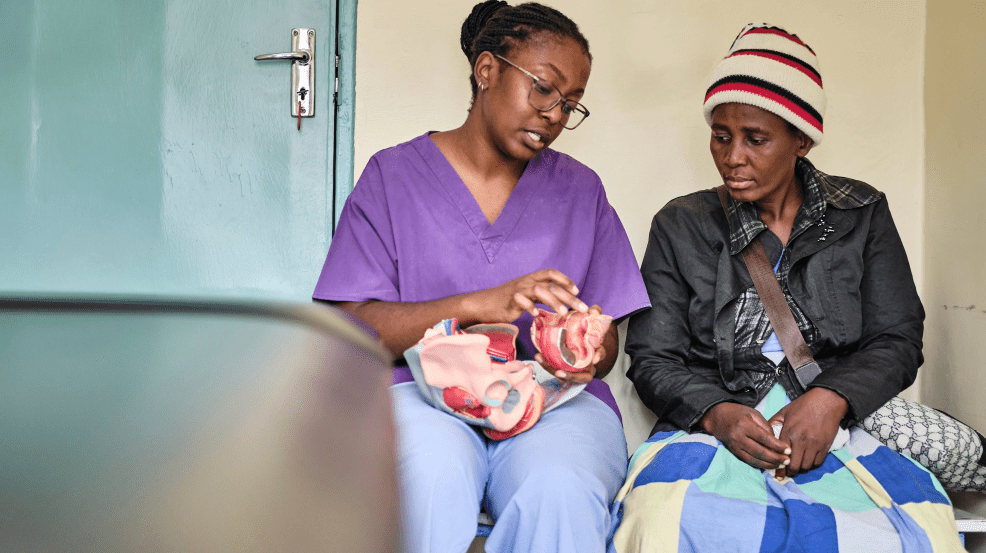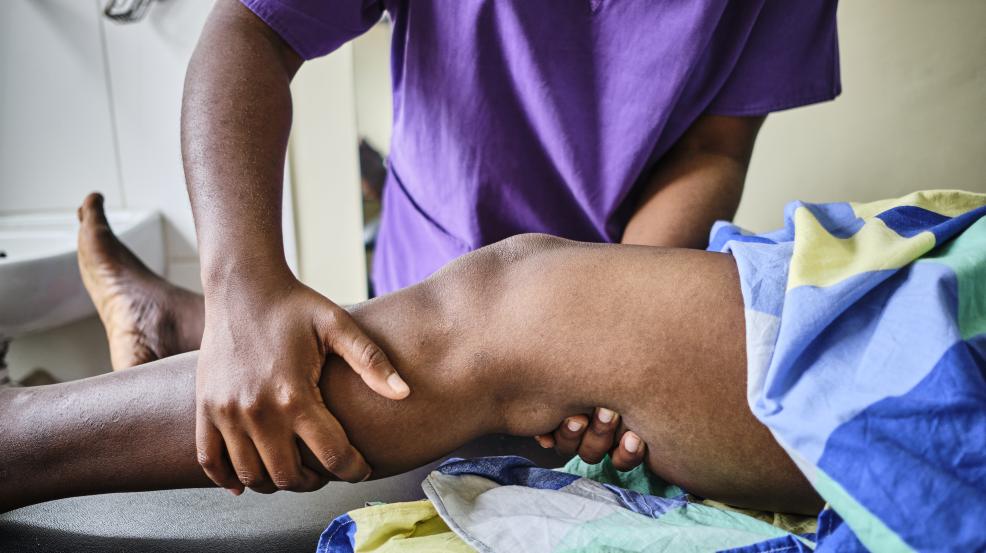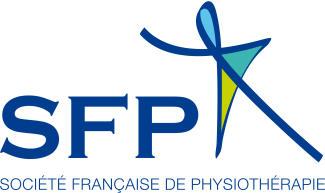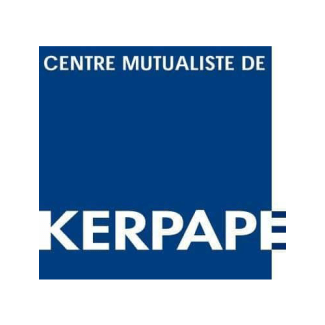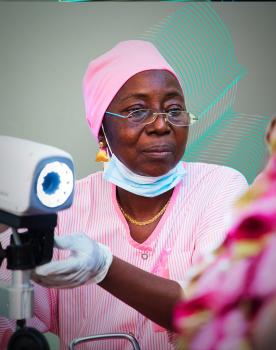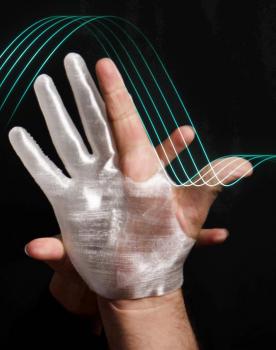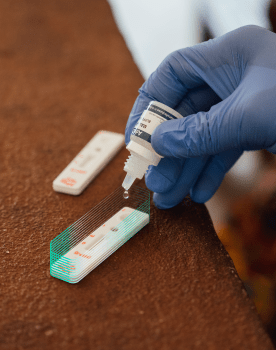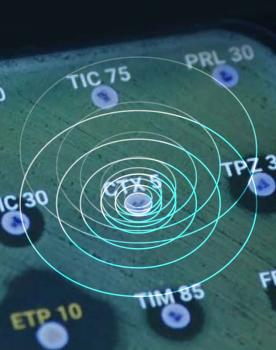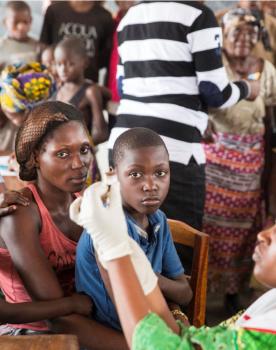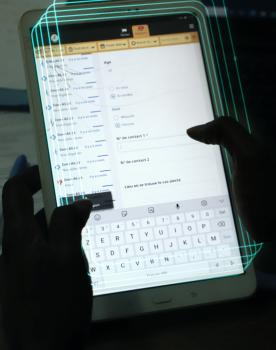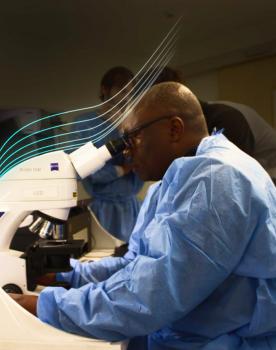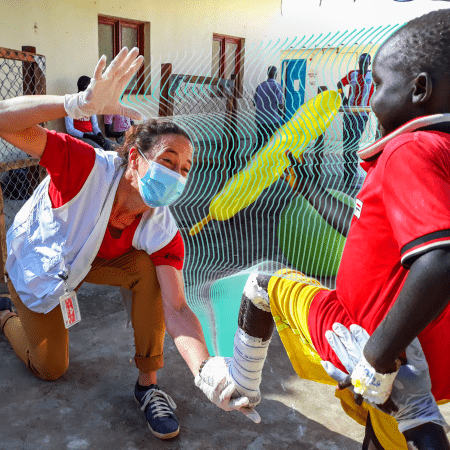
MSF physiotherapist Birgit Schönharting works with a patient being treated for a snake bite. South Sudan. 2020
MSF/Damaris Giuliana
Developing rehabiliation care
In brief
An essential discipline in patient care, rehabilitation plays a crucial role in their functional, social, economic, and family outcomes.
Sparsely represented in the contexts where MSF operates, it is almost exclusively limited to trauma care and, to a lesser extent, burns. However, its added value can benefit a large number of patients, particularly in women’s health and pediatrics.
In 2023, the MSF Foundation launched a program to develop rehabilitation activities to facilitate their integration into MSF projects. A team of specialized physiotherapists has been recruited.
We therefore work in three main areas:
- Pediatrics: particularly in the care of children with developmental delays and other consequences related to hospitalization and malnutrition,
- Women’s health: supporting women experiencing pain and functional disorders, especially pelvic issues following difficult childbirth, specific pathologies, or cancer treatment,
- Burns: to strengthen our expertise and develop solutions tailored to the local context.
Status of the project
News
In detail
1. Pediatric Rehabilitation and Neuro-Motor Development of the Child
We focus on integrating rehabilitation into the comprehensive care of children across various medical conditions.
These can be categorized as follows:
- Children affected by malaria, meningitis, or other conditions such as epilepsy and cerebral palsy, who may develop neurological sequelae requiring rehabilitation support.
- Malnourished children who may present:
- Neuro-motor delays (for example, not walking by 18 months),
- Severe muscle wasting or mobility restrictions, especially in the most severe cases with edema, including specific cases of kwashiorkor, a severe form of protein deficiency malnutrition.
All these patients can benefit from physical rehabilitation with physiotherapists to improve their functional prognosis and reduce delays by helping them progress through motor development stages (rolling over, crawling, sitting up, standing, walking). The earlier the intervention, the better the child’s outcome.
Achievements:
- Pilot project in Haydan, Yemen: Since late 2023, we have been supporting the training of the local team of two physiotherapists and the development of their rehabilitation unit. They manage all types of patients, including malnourished children. Rehabilitation for children with developmental delays linked to their nutritional status accounts for nearly 88% of pediatric sessions. On average, the team follows 69 new patients and conducts 245 sessions per month.
- Assessments were also conducted in 2024 in Chad, Nigeria, and South Sudan to evaluate needs. Over 1,000 children were examined, guiding future program implementations.
- Kano, Nigeria: In February 2025, our specialist established the rehabilitation activity within MSF WACA’s malnutrition program in Kano. Two physiotherapists were recruited and trained to address developmental delays as well as severe mobility restrictions related to kwashiorkor.
Outlook:
In addition to the Kano project, two more pediatric rehabilitation sites are planned in Chad and Katsina, Nigeria.
We continue to provide technical and organizational support to the Haydan project in Yemen. Finally, we remain open to training additional rehabilitation teams in MSF projects caring for these children.
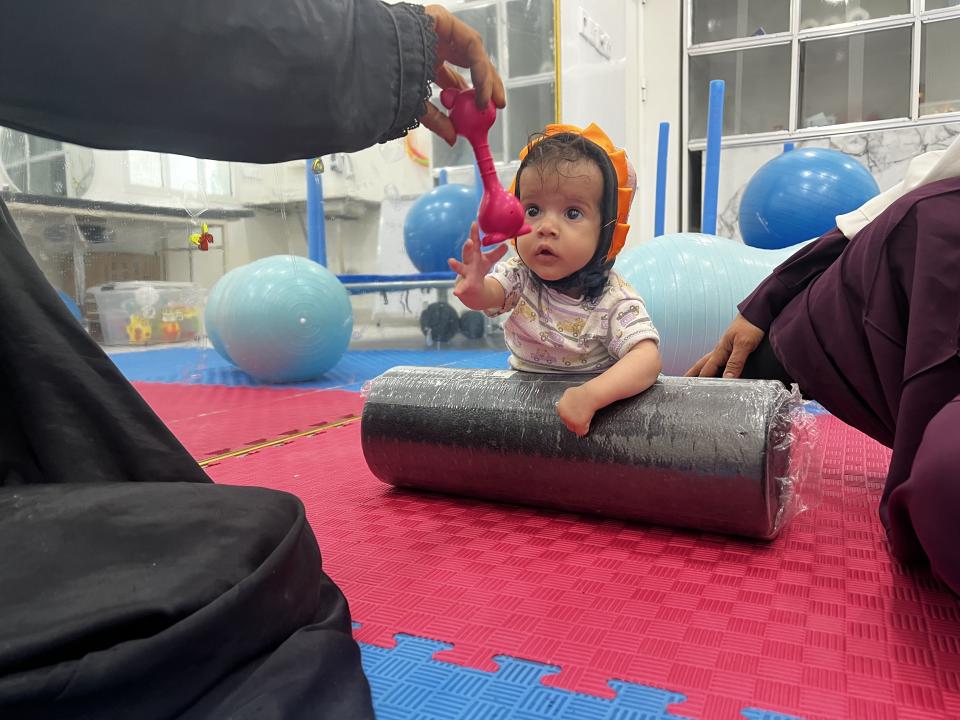
2. Women’s Health Project
Following complicated childbirth, specific conditions (such as vesicovaginal fistulas), or treatments for cervical cancer, complications can arise in the form of perineal pain, functional disorders (urinary and/or fecal incontinence, vaginal stenosis, edema, etc.), or sexual dysfunction. These complications can be prevented and treated through rehabilitation.
Achievements:
Blantyre, Malawi: Since early 2024, we have been involved in developing the rehabilitation service within the MSF project dedicated to cervical cancer care. After surgical treatment and/or chemo-radiotherapy, patients may experience functional sequelae such as vaginal stenosis, neuropathies, urinary retention, constipation, urinary or fecal incontinence, as well as pelvic floor pain and weakness. We support the local team—composed of two physiotherapists and one assistant—through training and help them integrate into the project’s multidisciplinary team. Together, we work toward systematic management and, as much as possible, preventive care for these symptoms. In 2024, the team conducted over 1,700 rehabilitation sessions in Blantyre.
Jahun, Nigeria: MSF’s project there sees over 600 births each month, with more than 160 requiring postnatal intensive care. Additionally, approximately 30 surgical procedures for fistula repair are performed monthly. Since June 2024, we have established a rehabilitation service with MSF, training two local physiotherapists and two assistants. The team now intervenes:
- In intensive care following complicated deliveries to help patients quickly regain autonomy.
- In the fistula care unit to better prepare and support post-surgical recovery and reduce functional complications (incontinence, prolapse, etc.)
Since the program’s launch, nearly 2,000 sessions have been delivered to over 650 patients in intensive care and the vesicovaginal fistula unit.
Outlook:
We continue to provide technical support and training to teams in Malawi and Nigeria remotely and through visits by our specialist. In Jahun, we aim to further develop rehabilitation services for women requiring pelvic follow-up after difficult childbirth.
We are also exploring other possibilities, including:
- In Yemen, within MSF activities focused on maternal and child health,
- In Afghanistan, working with community midwives to raise awareness and train local teams in identifying and managing pelvic functional disorders.
Finally, we plan to assess rehabilitation needs for survivors of sexual violence.
3. The Burn Care Project
Patients with deep burns require multidisciplinary care: surgical, medical, paramedical, psychological, and rehabilitative. Rehabilitation aims to prevent and treat complications related to pathological skin healing, such as contractures, adhesions, and hypertrophic scars. These sequelae are often painful, disfiguring, and impair the functionality of the affected areas.
Burn patient rehabilitation begins within the first days of hospitalization, including in the operating room, using positioning techniques, mobilization, and appropriate splinting devices. After discharge, patients continue their care for several months with stretching sessions, massages, wearing compression garments, and other specialized devices (see the 3D project).
Achievements:
We work with MSF to improve rehabilitation care for burn patients by training local teams (MSF or Ministry of Health) in Syria, Armenia, Iraq, and Haiti.
We continue to support current MSF missions remotely and on-site to ensure quality care, particularly in Atmeh, Syria; Tabarre, Haiti; and Aweil, South Sudan.
Outlook:
We hope to establish connections with other MSF sections and organizations to offer new training opportunities in other locations where burn patients are treated.
